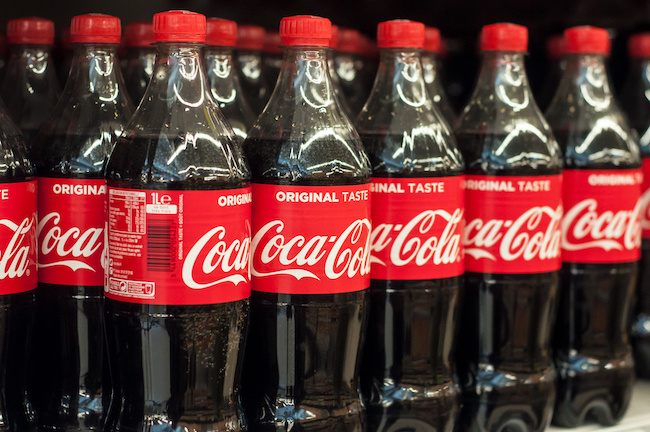Plastic Bottles Got to Go

by Lucy Sokol ‘21
What do you think about when you grab a soda from the store? Do you think about which brand to buy from? The flavor? The fizziness? Or is it the material of the container that simply “pleases” the eye?
According to Coca-Cola, the company refuses to stop producing plastic bottles simply because consumers prefer plastic over aluminum and glass. While the World Economic Forum states that Coca-Cola has plans to switch to 50 percent recycled materials by 2030, in the meantime the company continues to be one of the top plastic polluters globally. Not to mention, the global climate clock estimates we have approximately seven years to act before an irreversible climate emergency affects human existence. Coca-Cola’s choice of waiting ten years just to make half of its products from recycled materials is way too little, too late.
A survey released by Consumer Action found that 58 percent of respondents believe plastic materials are endlessly recyclable, when in reality, plastic beverage and food products are commonly downcycled into low-grade products that are eventually sent to landfills. In 2017, only 8.4 percent of plastic material generated in the United States was recycled, making the recycling rate of plastics depressingly low. Break Free From Plastic, an organization that strives for a plastic-free future, believes that recycling is not enough to solve the plastic pollution problem.
While many people see plastic as solely a landfill polluter as it takes hundreds of years to degrade, it raises greenhouse gas emissions as well. According to Carroll Muffett, head of the Center for International Environmental Law, “Emissions from plastics production and incineration could account to 56 gigatons of carbon between now and 2050.” If you do not see the environment’s health as an issue, think about your own. With the overload of plastic in landfills, Denise Patel, a U.S Coordinator for the Global Alliance for Incinerator Alternatives, explains that “Plastic is being burned in incinerators across the world, exposing communities to toxic pollution.”
While plastic is convenient, lightweight, and inexpensive, those should not be deciding factors of our environment’s health. Plastic bottles can easily be substituted with materials that many companies already use such as glass and aluminum. These products are infinitely recycled without loss of quality and they reduce the manufacturer’s carbon footprint.
If more people turn away from plastic bottles, it will force some of the biggest plastic producers to switch to more environmentally friendly alternatives. Skip the plastic, aluminum and glass are cooler anyway.